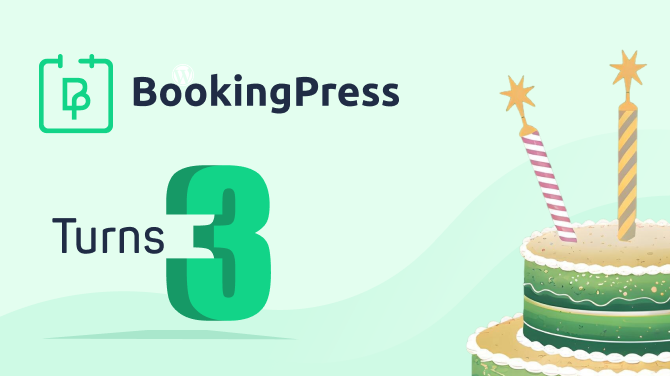The Hidden Costs of Not Using an Online Booking System

Investing in booking software involves costs – sometimes even regular, e.g., monthly or yearly payments.
That cost can vary and increase even further based on your business type, the number of employees, or the number of bookings that you take during a specific period of time, as well as the payment gateways that you want to use, etc.
But is this cost necessarily higher than the “opportunity cost” that emerges with the booking software constantly present in your business? Have you properly calculated the costs and risks of not using an online booking system?
Obviously, from the long-term perspective, not investing in booking software can be more risky, as it can eat into resources. And we can explain in more detail – why.
The basic truth about treating your money: save or invest.
Even in personal life, people who fear upfront costs tend to save rather than invest. The same applies to businesses; initial costs often overshadow long-term efficiency. These feelings often dominate solo entrepreneurs or inexperienced business owners.
But while investment definitely can be a poor risk, calculating the benefits of using the booking software for scheduling service businesses is much easier. And we’re here to help you with it.
Stay the same, and your business won’t evolve
The first thing to accept – if your business processes are not optimized and modern technology is not employed, you’re on the way to degradation sooner or later.

Many will choose a competitor who offers instant booking. Let’s showcase that with an example of a coaching center. If 3 potential students a month go elsewhere, and your average lesson is $30, that’s $1,080/year lost. But the loss is not just about the exact money.
In another common scenario, in many European countries, clinics book batches of annual checkups for clients by selecting times from a list, usually without prior patient input, which means the process is less personalized at the end of the day.
Booking systems integrated into the practitioner’s everyday workflow can help suggest available appointment times based on prioritized criteria. Single appointment bookings + batch bookings can be done much more efficiently, making every client in that batch happy and your reputation stronger.
You didn’t calculate the compounding effect
The smaller picture is so – each missed booking, no-show, or scheduling mistake might look minor (a loss of $30 for a lesson a week, for example).

But repeated week after week, month after month, these small losses turn into significant costs for your business. Needless to say, you lose the time you could use to adapt yourself or a team to the new booking software.
If every month without a booking solution like BookingPress costs (for example) ~$500 in missed revenue or wasted time, that’s ~$6,000/year, making “waiting” clearly more expensive than the basic BookingPress plan.
Neglect the preferences of modern customers and see them go
Modern people open a new digital bank account not just to have an account, but to earn tons of rewards and cashback opportunities. Shoppers use online price comparison tools to instantly find the best deals and save money.

In the world of constant digitalization and daily optimization, AI making decisions, and automatic selection of the ‘best’ options everywhere, the needs and demands of a customer are crucial.
What we are trying to say is that you can’t just give them a ton of manual and stressful tasks when they need to book their next healthcare visit!
Even if you, as a business, want to stick to a more traditional scheduling, remember that means you don’t take the needs of your customer into account. And that might cost you a customer.
The cost of manual updates across multiple resources
The costs can be really tangible if you sit and calculate the time you spend on tasks that could be automated. Think of how many calls, WhatsApp messages, and spreadsheets you need to manage to simply confirm availability, which could be done completely by a client.

Those can vary from business to business, but at the same time, you could assess that for your particular business:
- Manual updates on multiple docs or platforms – 2 extra hours/week wasted – ~$2,000/year in admin costs.
- Manual errors/bookings over the phone – double bookings – loss of guest trust + refunds.
- No online payment support – lower conversion rate – $X in missed bookings.
Hours lost that could be spent working or making your services more visible across the net.
Scheduling mistakes are costly, including damage to your reputation

Overlapping appointments and double bookings are enemies of any appointment-based business; needless to say, the customer’s frustration is huge when something like that happens.
For instance, if you operate a language school or teach online, just one upset student (or a corporate deal like a speaking club) not returning = $300–$500 in lost lifetime value.
A booking system could easily solve those issues with exact time scheduling, upfront payments, and automatically triggered notifications.
No-shows and last-minute cancellations will only grow

There is another psychological effect – a digital booking, confirmed and preferably paid by a customer, sort of feels more obligatory to the customer!
Moreover, with instant and automated notifications about the scheduled appointment, it’s easier to remember and never miss a meeting.
With the booking system, no-shows and last-minute cancellations that drain your resources – if not a thing of the past, then at least a problem you’ll see far less often.
Conclusion: Digitalization of Scheduling – An Expense or Profit?
You know the answer – it’s both. Add the costs up, and the ‘free’ manual way could be costing even a solo business owner around $5,000+ (missed appointments, extra admin work, refunds) a year in lost income and wasted time, while a booking system of around $100 per year could easily optimize your resources and even increase your revenue.
So, where do we recommend to begin, after you’ve done your math of how much you could save with a booking system?
- Shift your thinking from just scheduling to client self-scheduling, let your customer do your job, and still feel happier about the process. Reduce errors and boost your reputation.
- Customer satisfaction = revenue potential, and automated booking software is what customers expect for an easy and stress-free experience of appointment scheduling.
- When you are ready to test things out, start with a demo version or budget-friendly options like BookingPress to make your spending on the booking system less stressful.
Related articles:

Get BookingPress Premium
60+ Premium Addons
20+ Payment Gateways
Plan starts at just $89
Get Premium Now







